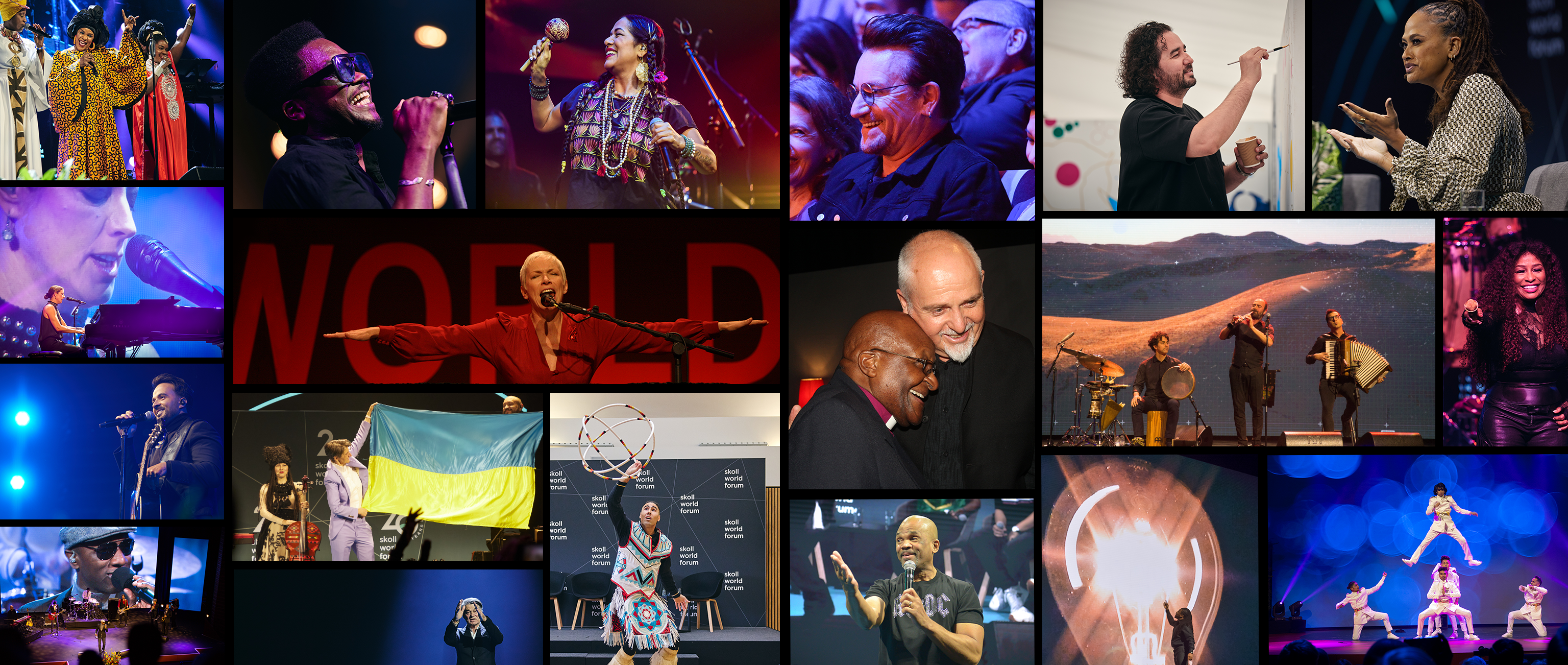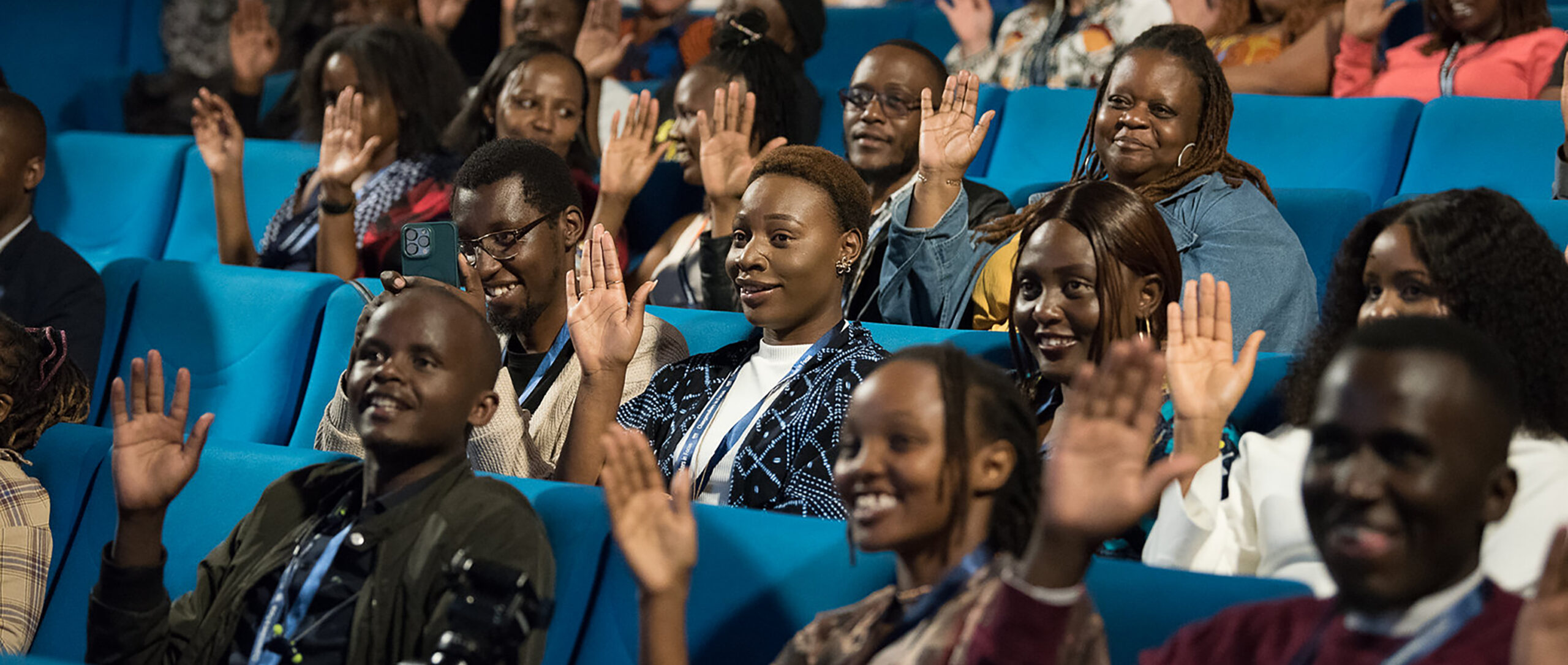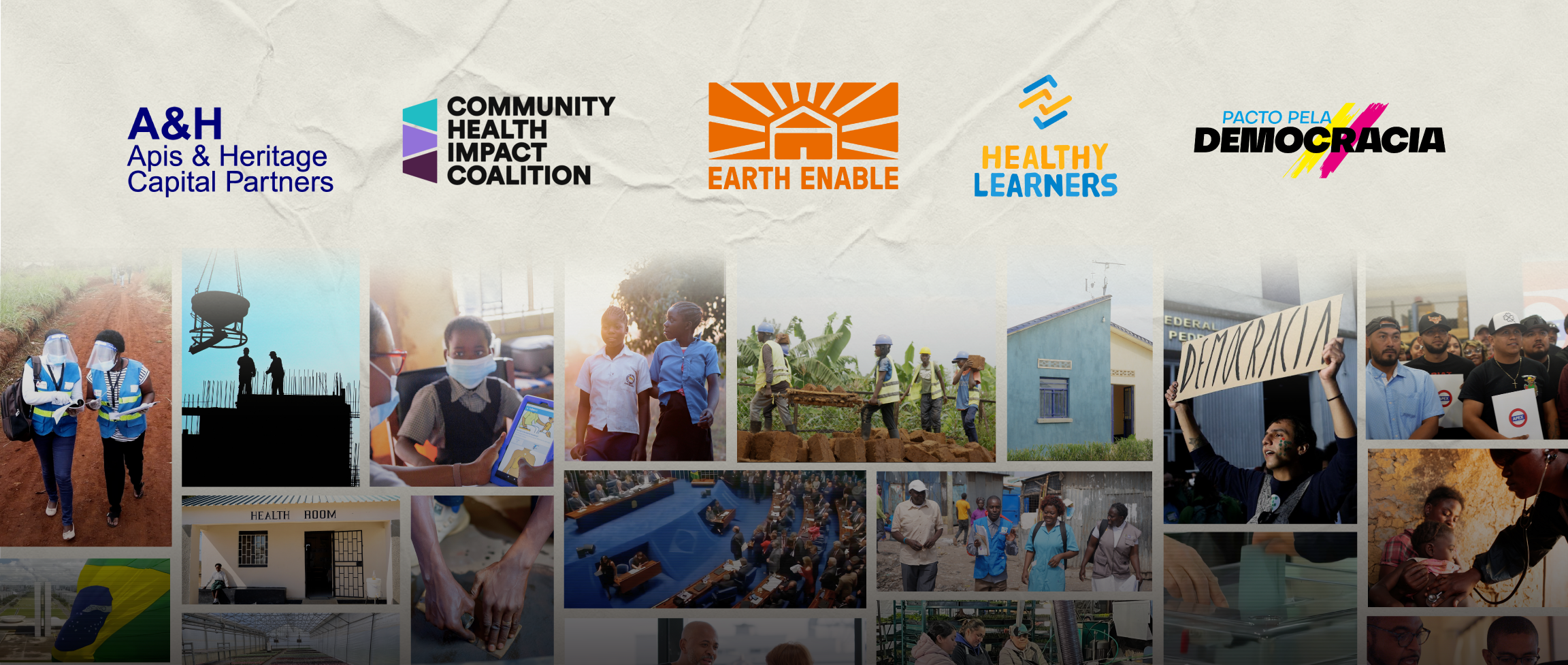When Crisis Strikes a Skoll World Forum
On an unusually mild Sunday in mid-April of 2010, June Cohen stood on a London stage and welcomed a disoriented crowd. “How many of you are stranded here?” she asked. “This is a very unlikely event after another very unlikely event. We’re making a big pitcher of lemonade out of our ruined plans.”
So began TEDxVolcano, an event thrown together in the chaotic 48 hours after the eruption of Iceland’s long-dormant Eyjafjallajökull, whose massive ash cloud grounded travelers across Europe for several days, including the Skoll community that had gathered the week before in Oxford for the Skoll World Forum. The lineup was stellar: a MacArthur “genius” fellow, a TED prize winner, and the director of the Sundance documentary film program among them. The theater was so packed more chairs were brought in.
The volcano erupted on the final day of the Forum, the day when the thousand or so delegates, speakers, and Skoll staff would normally be making their way back home. Initial information indicated that air travel could be suspended for months.
“The ferries and buses were jammed with people,” recalls Heather Mason, CEO of Caspian, the agency that produces the Skoll World Forum. “All of our speakers were stranded. All the Skoll Foundation staff was stranded. We even looked into trying to book a cruise liner to get us back.”
In the meantime, the Skoll community did what they do so well: they turned a problem into an opportunity. TEDxVolcano was a magical gathering because the vast majority of those who graced the stage, and those who filled the chairs had just come from the Forum, brimming with infectious energy from a week alongside the most innovative social entrepreneurs on the planet.
Jill Ultan, who joined the Skoll staff the following year as Skoll World Forum Producer, works closely with Heather to craft emergency plans that prepare for unlikely scenarios. They both feel a deep responsibility for the safety and welfare of every attendee, and the work that goes into crafting a seamless Forum experience is mostly invisible—by design.
In 2015, another crisis showed the importance of logistical work behind the scenes. During the Closing Plenary gathering in New Theatre, Jill’s phone began buzzing like crazy. A block away, a fire had started in the kitchen at the Randolph Hotel, where most of the speakers and guests of honor stay during the Forum. Flames were rising from the roof. Smoke filled the surrounding streets as 14 firetrucks battled the blaze. No one would get back into the Randolph for weeks. Delegates’ bags were still sitting in rooms, clothes in closets, passports locked in room safes.
“People couldn’t get their medicine, so we had our stewards going to pharmacies to get needed medicine and other supplies,” remembers Ultan. “We had a nursing mother who couldn’t get to her pump, all sorts of issues arose in the initial turmoil. When it became clear that no one was getting back into their rooms that evening, our team rallied together to provide stranded delegates with all the necessary support to make their stay as comfortable as possible under the circumstances. We secured housing for everyone needing accommodation for the night, and we made sure they had all the basic supplies like toothbrushes, deodorant, and snacks.”
A big lesson from that experience was around communication during a crisis—in the years since, all delegates have supplied emergency contact information, and all accommodation details are organized in google docs easily accessible in the cloud. “We struggled with how to reach people,” said Ultan. “We had all the hotel information, however it wasn’t centralized so it took longer to access and pull together into one place. In addition, our hotel contact was unable to provide us with an up-to-the-minute rooming list so we didn’t know who had already checked out of the hotel. A big lesson for us was that we need to take better advantage of the technology that exists to optimize all our delegate information and communications.”
Strategy and logistics are inextricably linked, points out Heather. “If things are working as they should, the logistics are invisible,” she says. A key driver of a successful Skoll World Forum is getting delegates into and out of spaces rapidly and with ease. Well-trained stewards, effective and efficient signage, adherence to schedules—all of these seemingly mundane details are crucial to ensuring that every delegate makes the most of the content, context, and connections at the Forum.
“When meetings between human beings are curated consciously, that’s when magic happens,” say Heather and Jill. Holding the Forum in Oxford of course presents challenges. “Putting A/V into buildings built for Shakespeare is tricky,” says Mason. “The setting, though, is magical,” she says. “It’s like Cannes or Sundance because we take over a town that’s a little out of the way, a little trickier to work in, but enables the delegates to form a tightknit community.”
The result is a week of pure inspiration and productivity. Career changing partnerships form. Deals are made that launch burgeoning enterprises. Lessons are shared from the far corners of the field of social entrepreneurship.
“Every year without fail delegates tell us it’s one of the most important weeks of the year for them,” says Jill. “They say they get three months of work done in one week at the Forum.” For Jill and Heather, that’s what makes their work so rewarding: to help make those connections happen, to see the collaboration and comradery flourish, and to celebrate the game-changing innovations of social entrepreneurs around the world.



